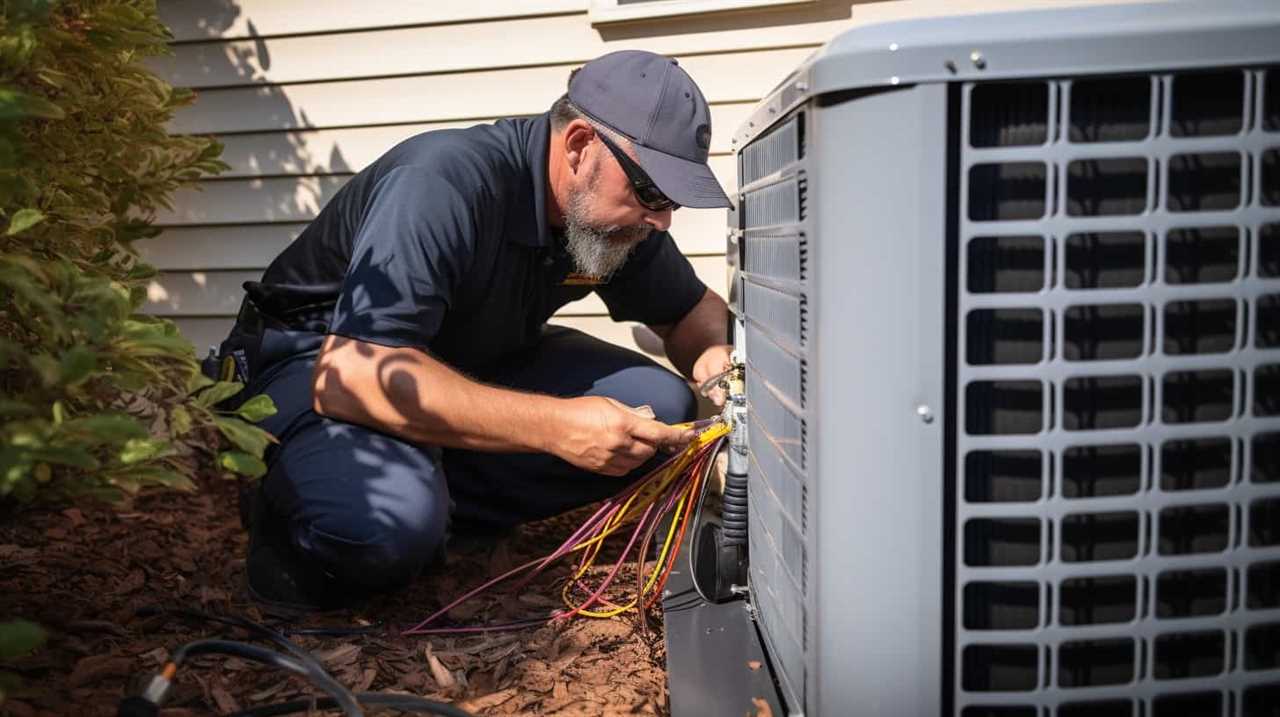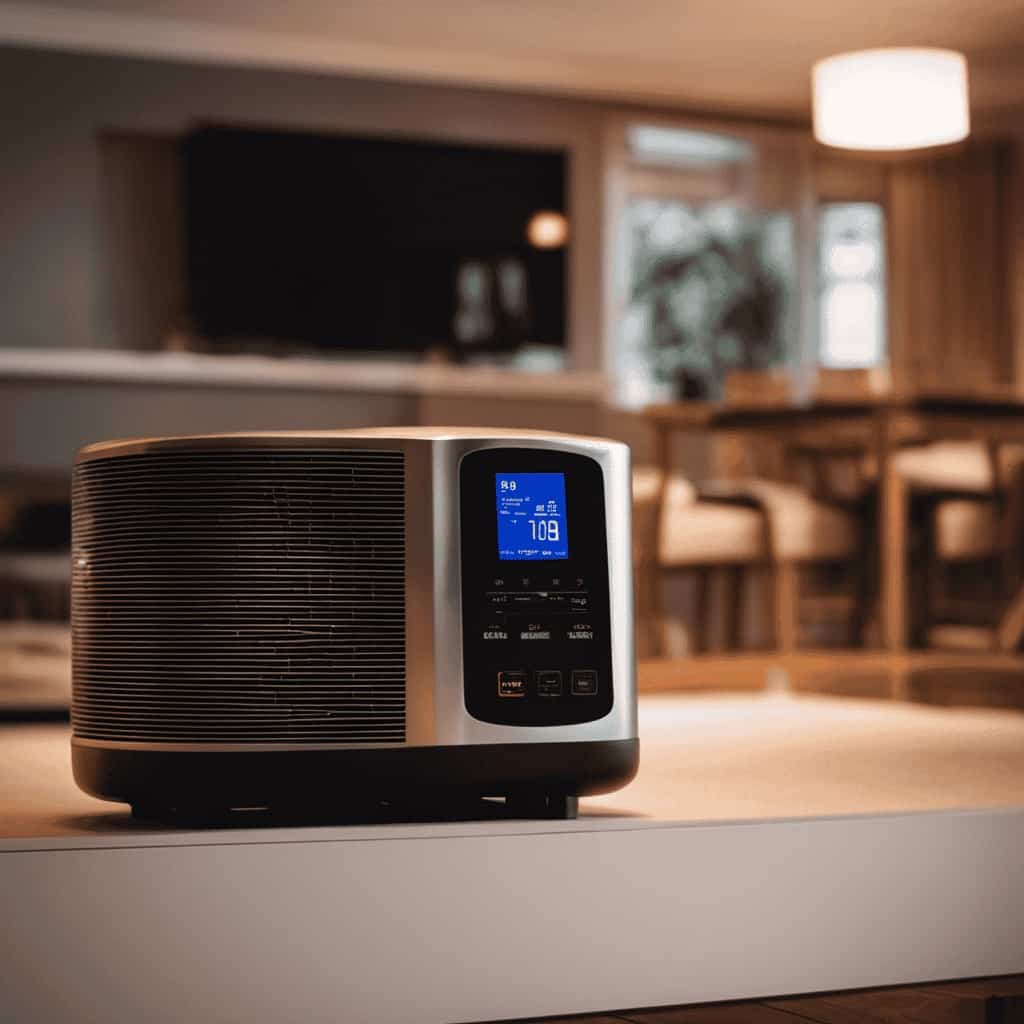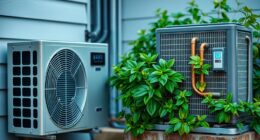Welcome to our guide on heat pump efficiency for environmental benefit.
We’re here to shed light on the impact of traditional heating systems and share insights on how high efficiency heat pumps can help reduce carbon emissions.
With a focus on sustainable energy solutions, we’ll explore the role of heat pump efficiency in achieving a greener future.
Join us as we delve into the technical details and data-driven information that will empower you to make informed decisions for a more eco-friendly home.
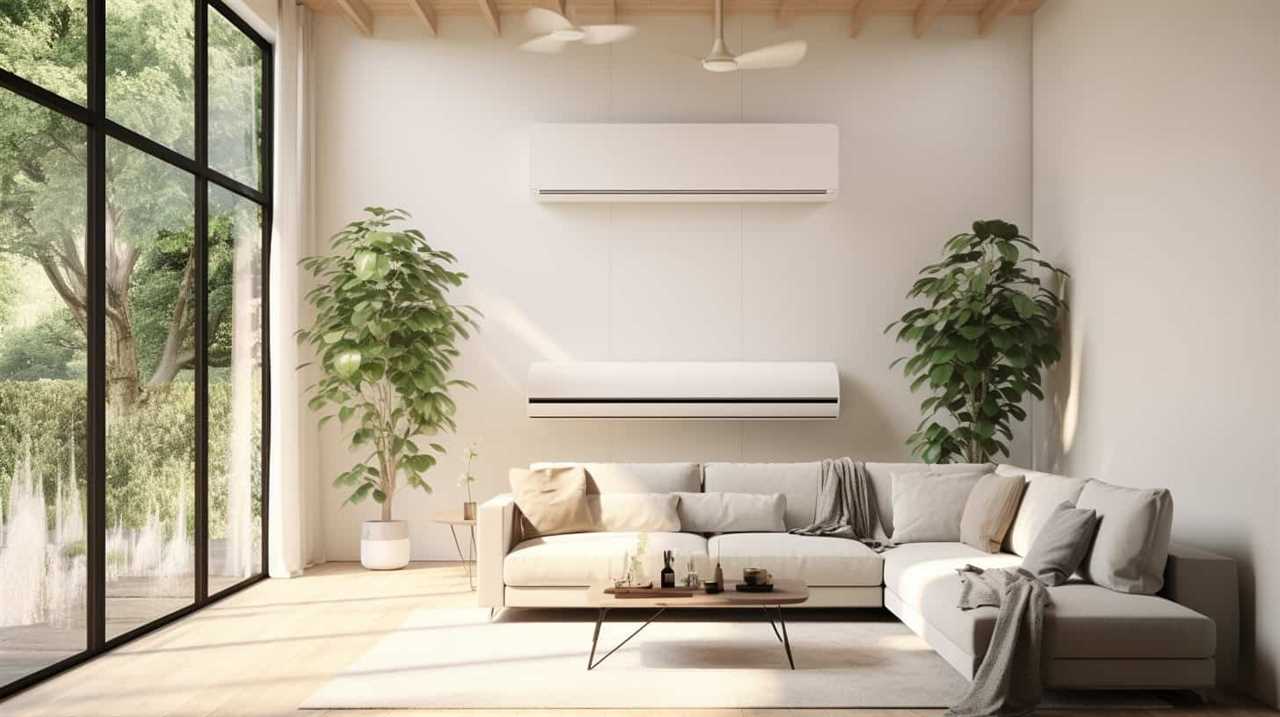
Key Takeaways
- Traditional heating systems contribute to air pollution and emit greenhouse gases, while high efficiency heat pumps reduce energy consumption and produce fewer emissions.
- Heat pump efficiency is measured by SEER and HSPF ratings, which indicate the cooling and heating efficiency respectively. Higher ratings mean greater energy efficiency.
- High efficiency heat pumps help preserve natural resources, protect biodiversity, and contribute to a more sustainable energy future.
- Heat pump technology can significantly reduce carbon emissions by up to 50% and plays a crucial role in achieving sustainable energy solutions.
The Environmental Impact of Traditional Heating Systems
We will now explore the environmental impact of traditional heating systems.
Traditional heating systems, such as furnaces and boilers, are known for their high energy consumption and contribution to air pollution. These systems rely on the combustion of fossil fuels, such as coal, oil, or natural gas, to generate heat. As a result, they release a significant amount of greenhouse gases, including carbon dioxide, into the atmosphere. This not only contributes to climate change but also poses health risks due to the release of pollutants like sulfur dioxide and nitrogen oxides.
In addition, traditional heating systems often have low energy efficiency, meaning they waste a considerable amount of energy in the form of heat loss. This inefficiency further exacerbates their environmental impact and drives up energy costs for consumers.
Understanding Heat Pump Efficiency Ratings
To better understand heat pump efficiency, it is important to consider two key ratings: the Seasonal Energy Efficiency Ratio (SEER) and the Heating Seasonal Performance Factor (HSPF). The SEER measures the cooling efficiency of a heat pump, while the HSPF measures its heating efficiency. These ratings help consumers compare the energy efficiency of different heat pump models and make informed decisions.
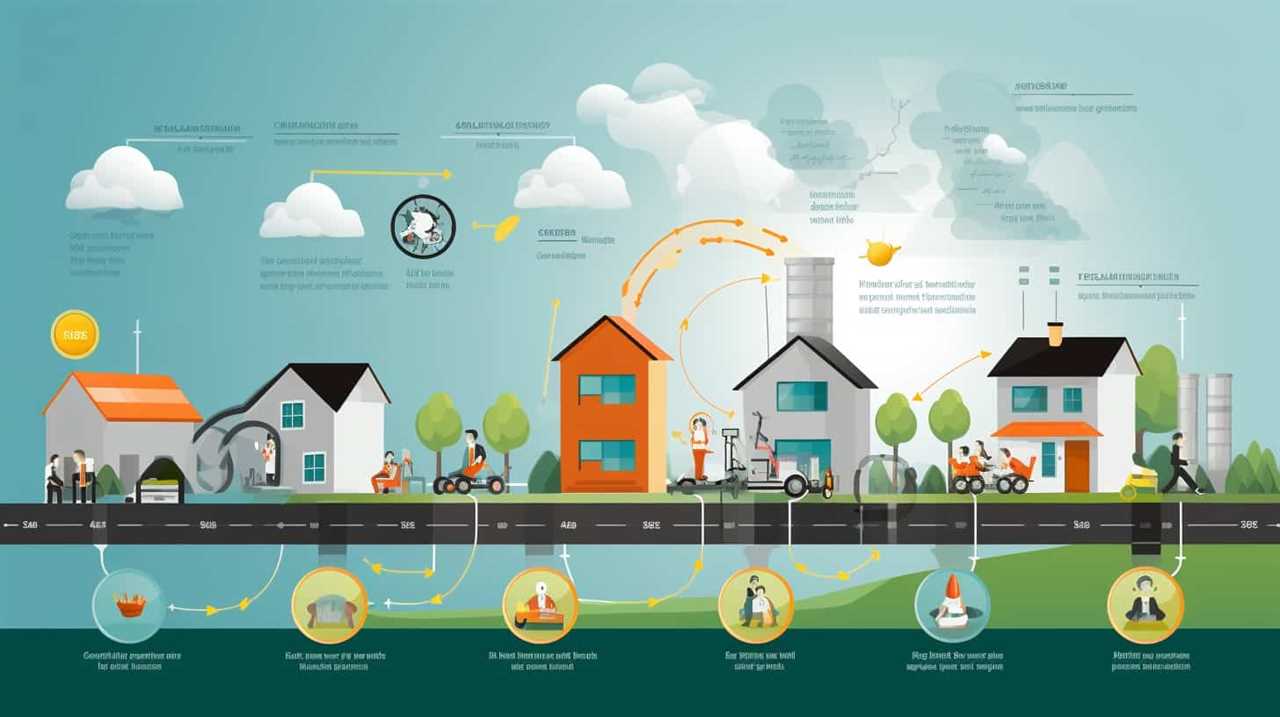
| Rating | Description | Range |
|---|---|---|
| SEER | Cooling efficiency rating | 14-25 |
| HSPF | Heating efficiency rating | 8-13 |
Higher SEER and HSPF ratings indicate greater energy efficiency, meaning the heat pump uses less electricity to provide heating and cooling. This is achieved through advanced heat pump technology that transfers heat from one area to another rather than generating it. By reducing energy consumption, heat pumps help save money on utility bills and reduce environmental impact. It is important to consider both SEER and HSPF ratings when choosing a heat pump to ensure optimal energy efficiency and cost savings.
Benefits of High Efficiency Heat Pumps for the Environment
High efficiency heat pumps offer significant environmental benefits due to their reduced energy consumption and lower greenhouse gas emissions. By choosing a high efficiency heat pump, you can contribute to reducing pollution and conserving energy.
Here are three key benefits of high efficiency heat pumps for the environment:
-
Lower Energy Consumption: High efficiency heat pumps use advanced technology to maximize energy efficiency, resulting in lower energy consumption compared to conventional heating systems. This helps to reduce the overall demand for electricity and fossil fuels, leading to a decrease in pollution and a more sustainable energy future.

-
Reduced Greenhouse Gas Emissions: High efficiency heat pumps produce fewer greenhouse gas emissions compared to traditional heating systems. By using cleaner energy sources and minimizing carbon emissions, high efficiency heat pumps contribute to mitigating climate change and improving air quality.
-
Environmental Preservation: By reducing energy consumption and greenhouse gas emissions, high efficiency heat pumps contribute to the preservation of our natural resources and ecosystems. This helps to protect biodiversity, maintain ecological balance, and ensure a healthier environment for future generations.
Transition: Now that we understand the environmental benefits of high efficiency heat pumps, let’s explore how they can help in reducing carbon emissions with heat pump technology.
Reducing Carbon Emissions With Heat Pump Technology
By utilizing heat pump technology, we can effectively reduce carbon emissions. Heat pumps are highly efficient devices that can provide both heating and cooling for buildings. Compared to traditional heating and cooling systems, heat pumps consume less energy, which translates into lower carbon emissions.
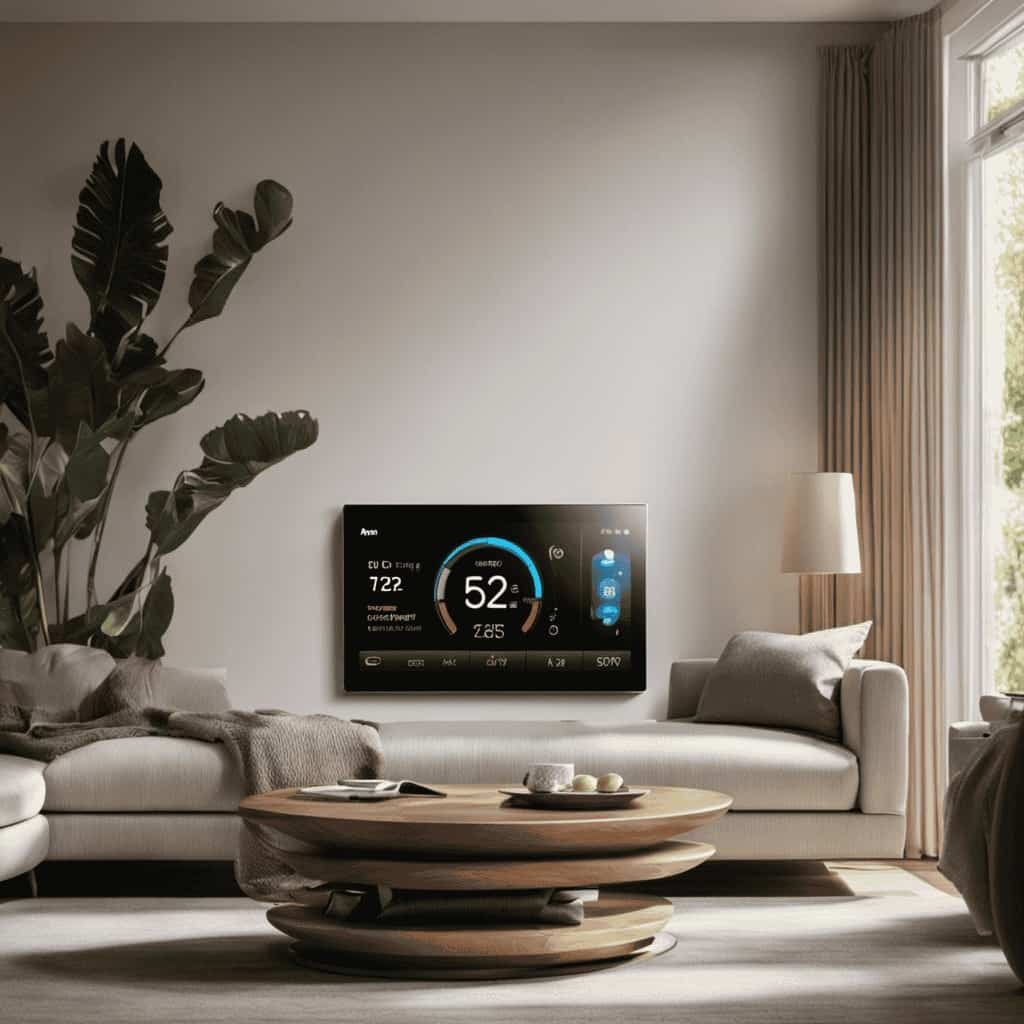
Heat pumps achieve this by extracting heat from renewable energy sources such as the air, ground, or water. These renewable energy sources are abundant and readily available, making heat pumps a sustainable option for reducing energy consumption and carbon emissions.
In fact, studies have shown that heat pumps can reduce carbon emissions by up to 50% compared to conventional heating systems. By embracing heat pump technology, we can make a significant impact on reducing carbon emissions and mitigating climate change.
The Role of Heat Pump Efficiency in Sustainable Energy Solutions
Heat pump efficiency plays a crucial role in our pursuit of sustainable energy solutions. As we strive to reduce our reliance on fossil fuels and mitigate the effects of climate change, it’s imperative that we maximize the efficiency of our heating and cooling systems.
Here are three key reasons why heat pump efficiency is vital in achieving sustainable energy solutions:

-
Role of renewable energy sources: Heat pumps can operate using renewable energy sources such as solar power, geothermal energy, or even waste heat. By utilizing these sustainable energy sources, heat pumps can significantly reduce carbon emissions and dependence on non-renewable resources.
-
Energy efficiency in buildings: Buildings account for a significant portion of global energy consumption. Heat pumps, with their high efficiency ratings, can help reduce energy consumption in buildings by efficiently transferring heat from one area to another. This leads to lower energy bills and reduced environmental impact.
-
Environmental benefits: By operating at high efficiency levels, heat pumps contribute to a cleaner environment by reducing greenhouse gas emissions and air pollution. This not only improves the quality of the air we breathe but also helps mitigate the effects of climate change.
Frequently Asked Questions
How Much Money Can I Save on My Energy Bills by Using a High Efficiency Heat Pump?
Using a high efficiency heat pump can result in significant energy savings, lowering your monthly bills. Additionally, it reduces your environmental impact by consuming less energy and emitting fewer greenhouse gases.

Are There Any Government Incentives or Rebates Available for Installing a Heat Pump?
Yes, there are government incentives and rebates available for installing a heat pump. These programs aim to promote energy savings and environmental benefits. They can help offset the initial cost and make heat pump installation more affordable.
Can a Heat Pump Be Used for Both Heating and Cooling Purposes?
Yes, a heat pump can be used for both heating and cooling purposes. It offers advantages such as energy efficiency, lower operating costs, and reduced carbon emissions. The heat pump installation process ensures optimal performance for year-round comfort.
How Long Does a Heat Pump Typically Last Before Needing to Be Replaced?
On average, a heat pump typically lasts 12-15 years before needing replacement. Signs of a failing heat pump include decreased efficiency, frequent breakdowns, and strange noises. Regular maintenance can extend its lifespan.
Are There Any Maintenance Requirements for Heat Pumps to Ensure Optimal Efficiency?
Maintenance requirements are crucial for ensuring optimal efficiency of heat pumps. Regular cleaning of filters and coils, checking refrigerant levels, and inspecting electrical connections are key. Follow manufacturer guidelines for best results.

Conclusion
In conclusion, by understanding the environmental impact of traditional heating systems and the benefits of high efficiency heat pumps, we can make a significant impact on reducing carbon emissions and promoting sustainable energy solutions.
With heat pump technology, we have the power to create a cleaner and greener future.
So let’s embrace the efficiency of heat pumps and take a step towards a more environmentally friendly world.
The choice is ours, and the possibilities are endless.
